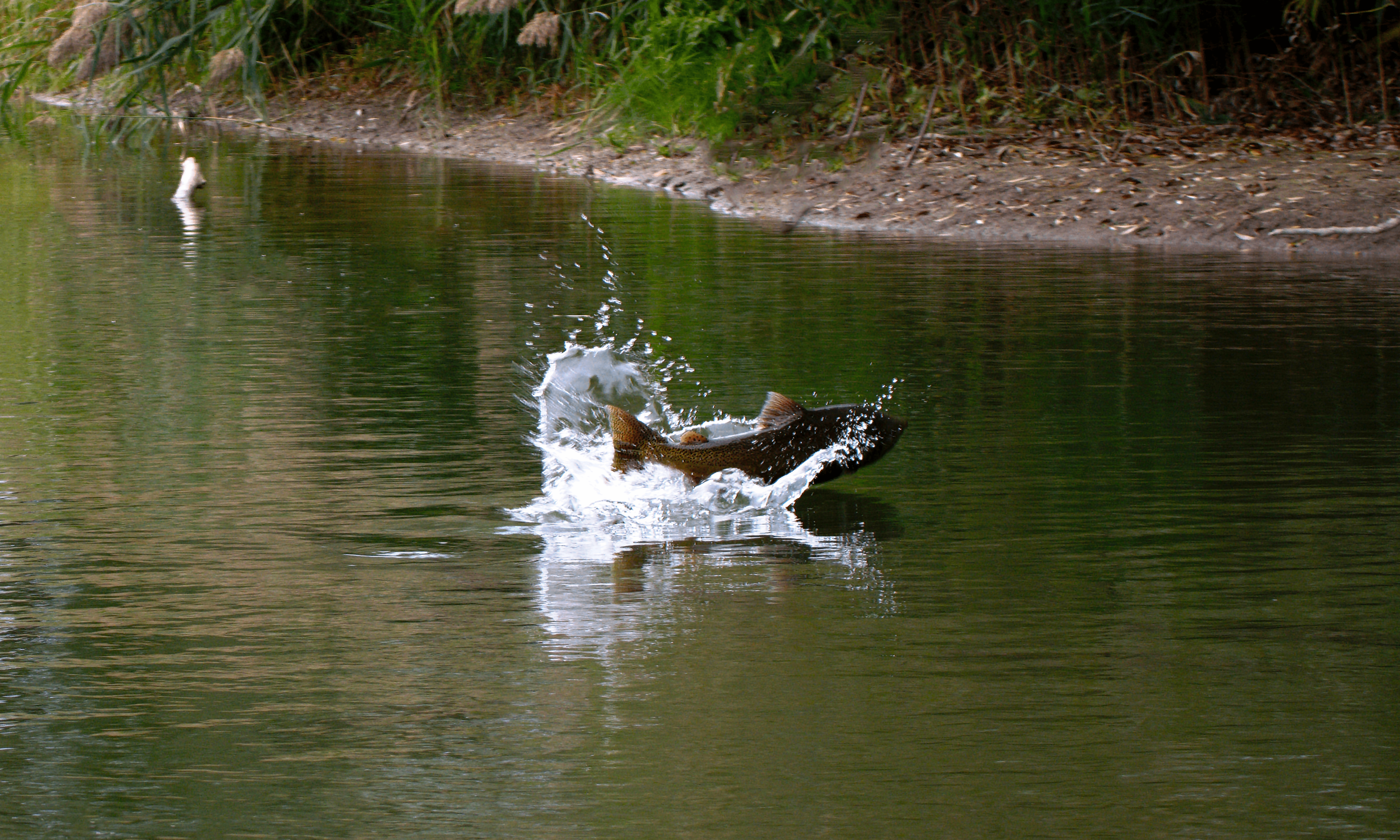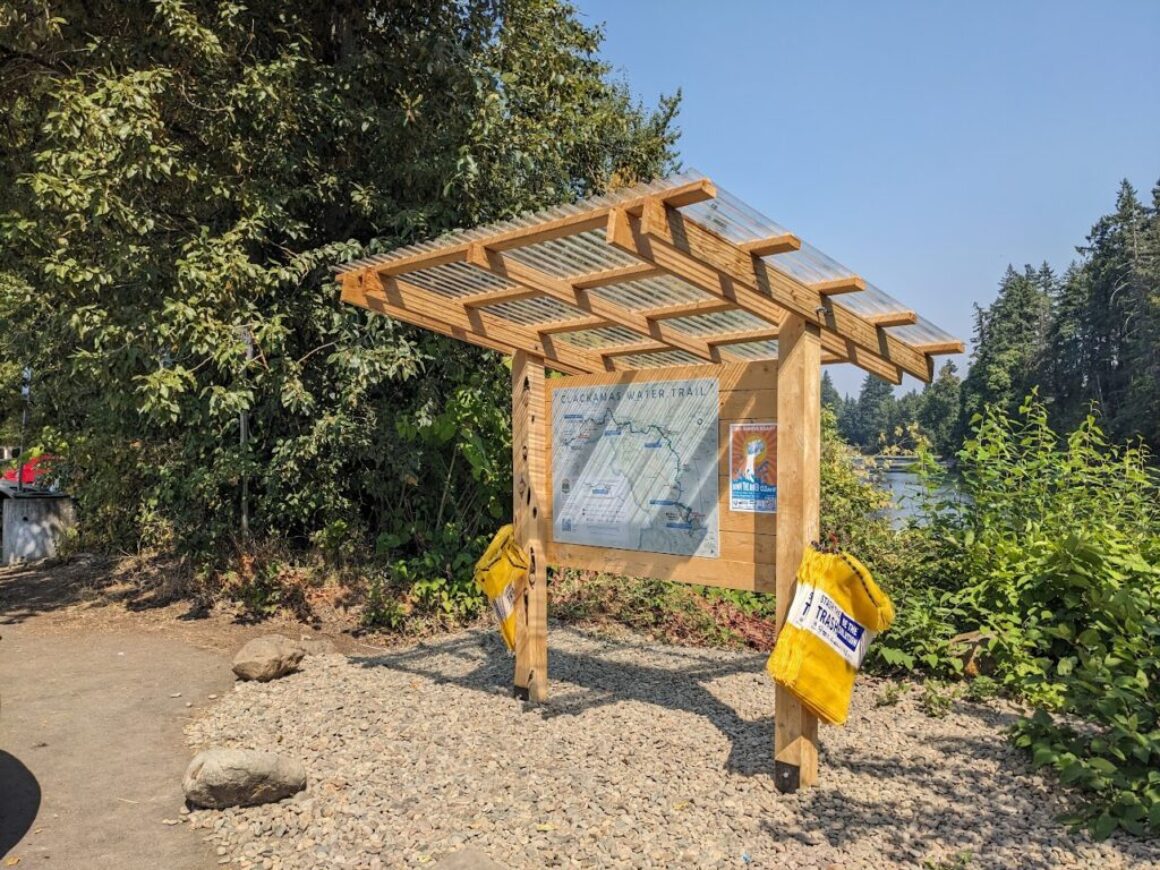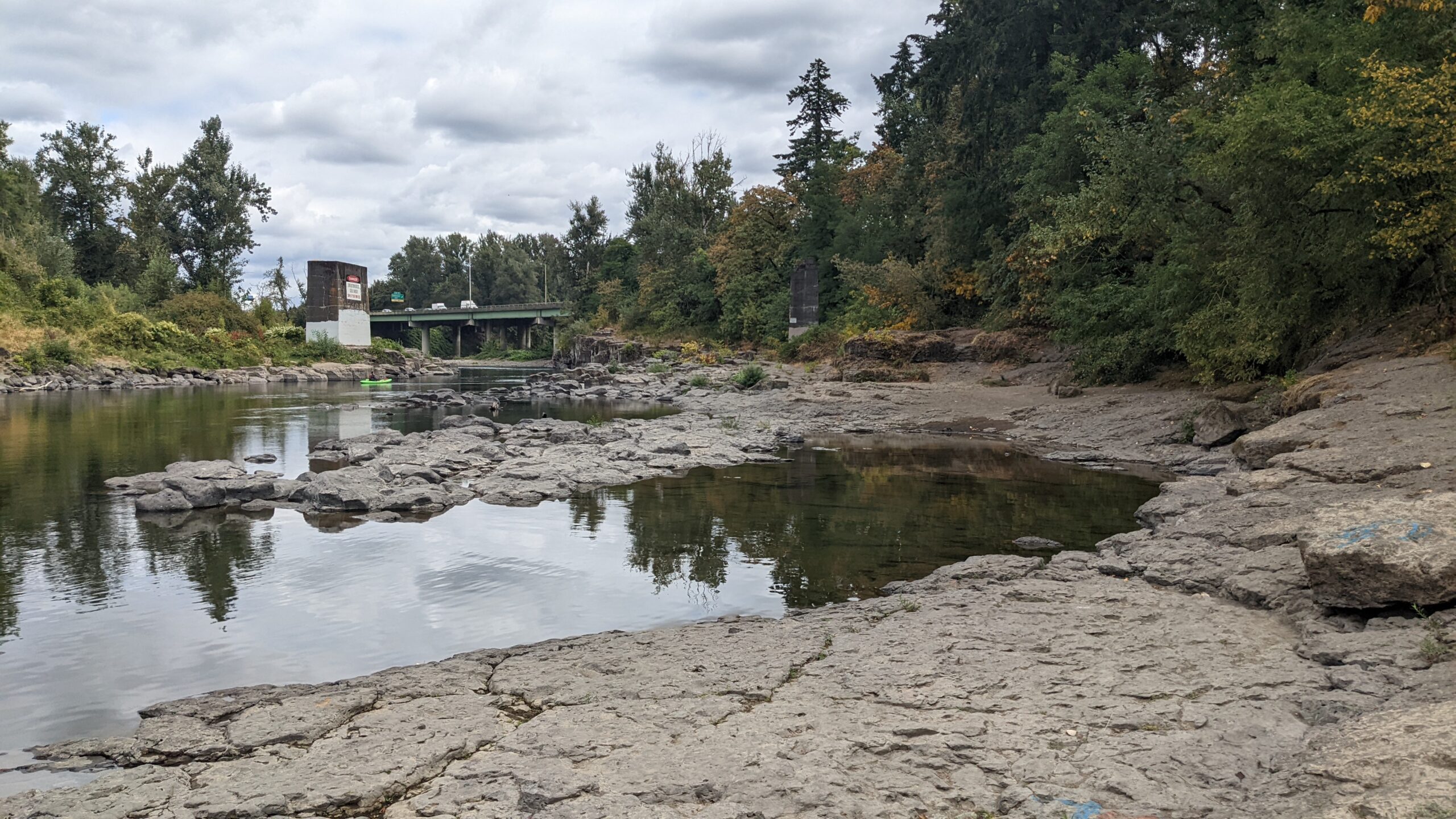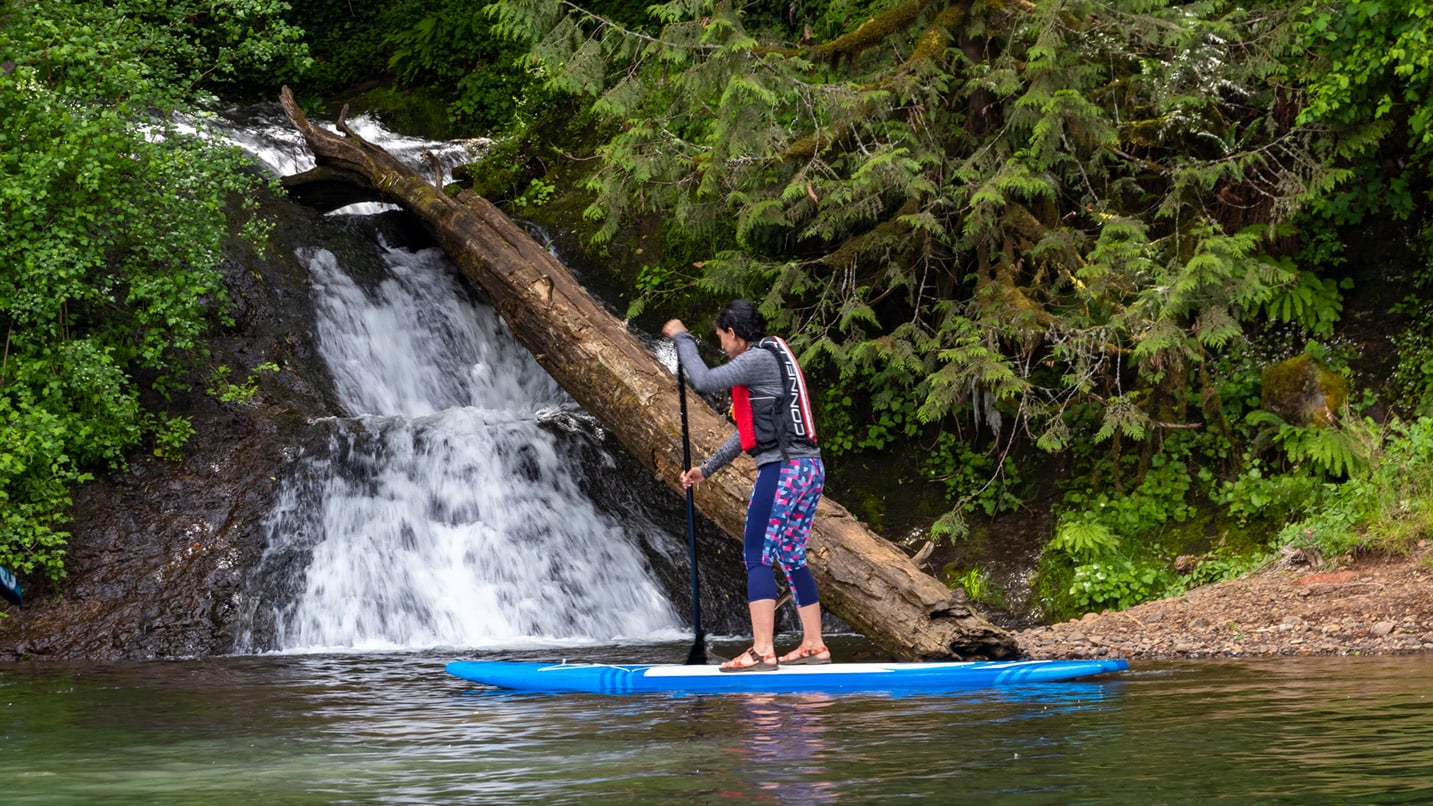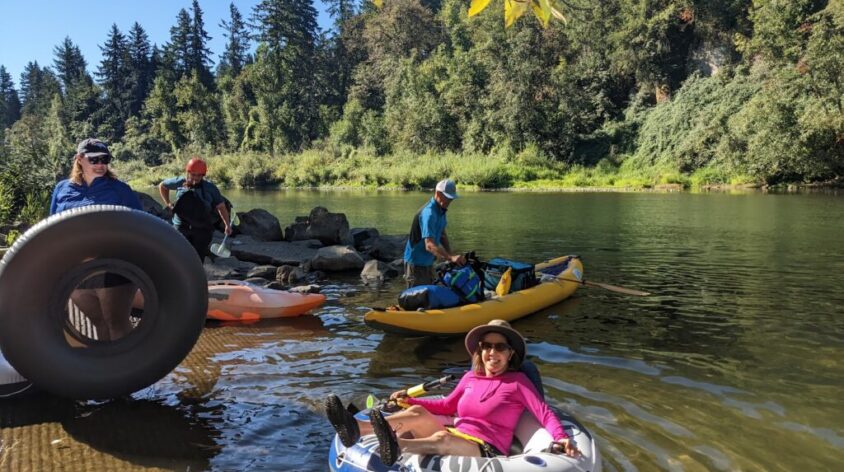
Summer Pastime for Thousands
Floating the clean and wild Clackamas River during hot summer days is a pastime for thousands in the Portland region. For anyone on the river or its banks, it is imperative to minimize impact on the landscape and water quality. Not only does the Clackamas provide critical habitat for wildlife, including endangered salmon and lamprey, it is also the source of drinking water for over 300,000 Oregonians.
Floating down a Water Trail should ‘Leave No Trace’
Floating a river should have minimal negative impact on wildlife and water quality, and if done thoughtfully, very little impact on others enjoying the wild splendor of a river. That is one of the joys of floating and boating, where unlike a land trail or path, the open water returns to its wild form as soon as your wake, splash, or other perturbance settles. Every boat and swimmer leaves no trace when traveling on a water trail or other form of open water. For more information on all of the practices around ‘Leave No Trace’ (‘LNT’) visit the LNT website (www.lnt.org).
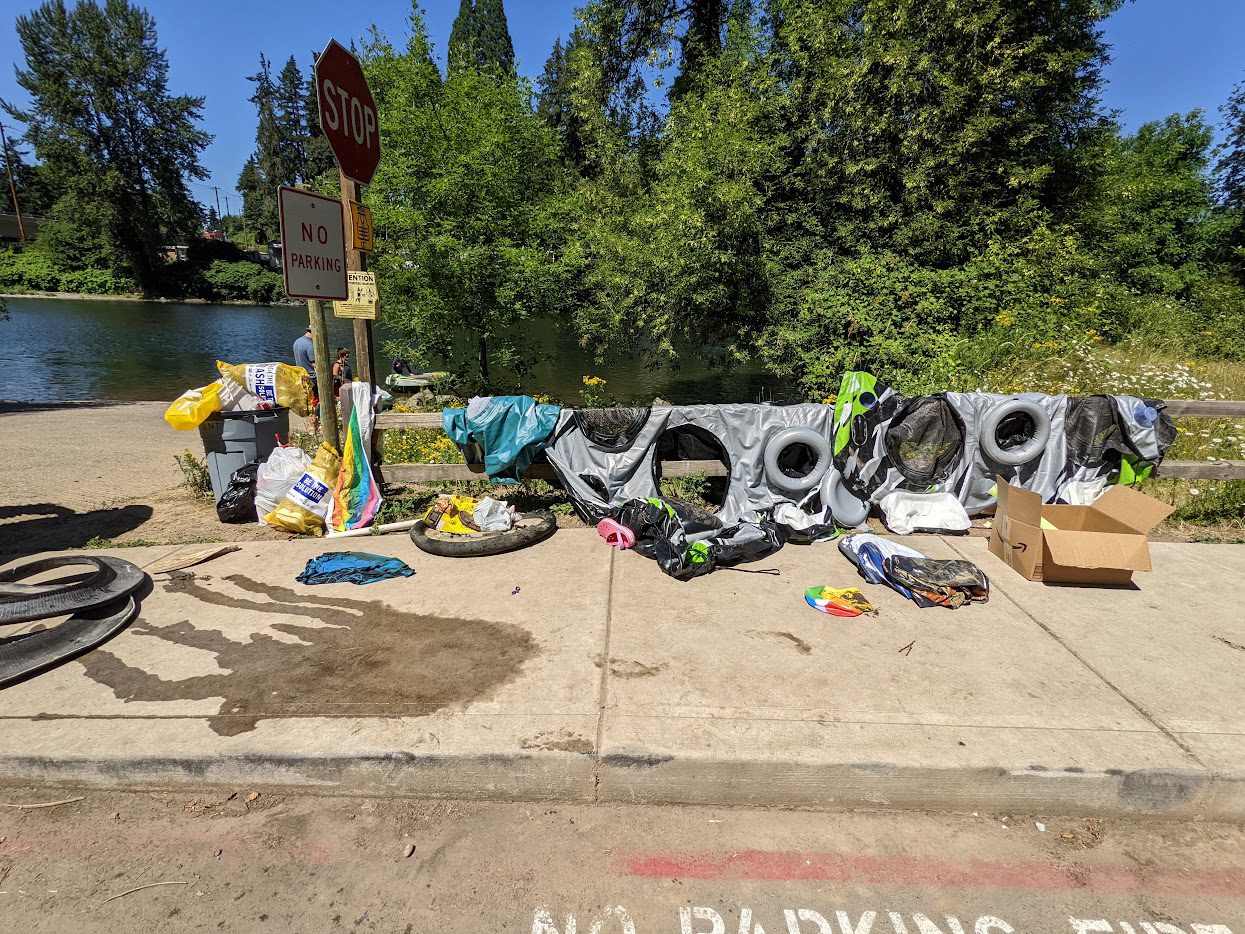
Popped Floaties, Picnic Litter, Poop!
Litter is the most recognizable indication of high-impact recreation. Related to litter, It is also unhealthy for both wildlife and people when human or dog waste is left behind. Reckless fires destroy habitats and threaten people. Getting too close to – or touching – wildlife can be dangerous to animal and observer. Each of these actions not only despoil or threaten otherwise pristine rivers and riparian areas, they diminish the recreational value for others as well. And they are relatively easy to avoid.
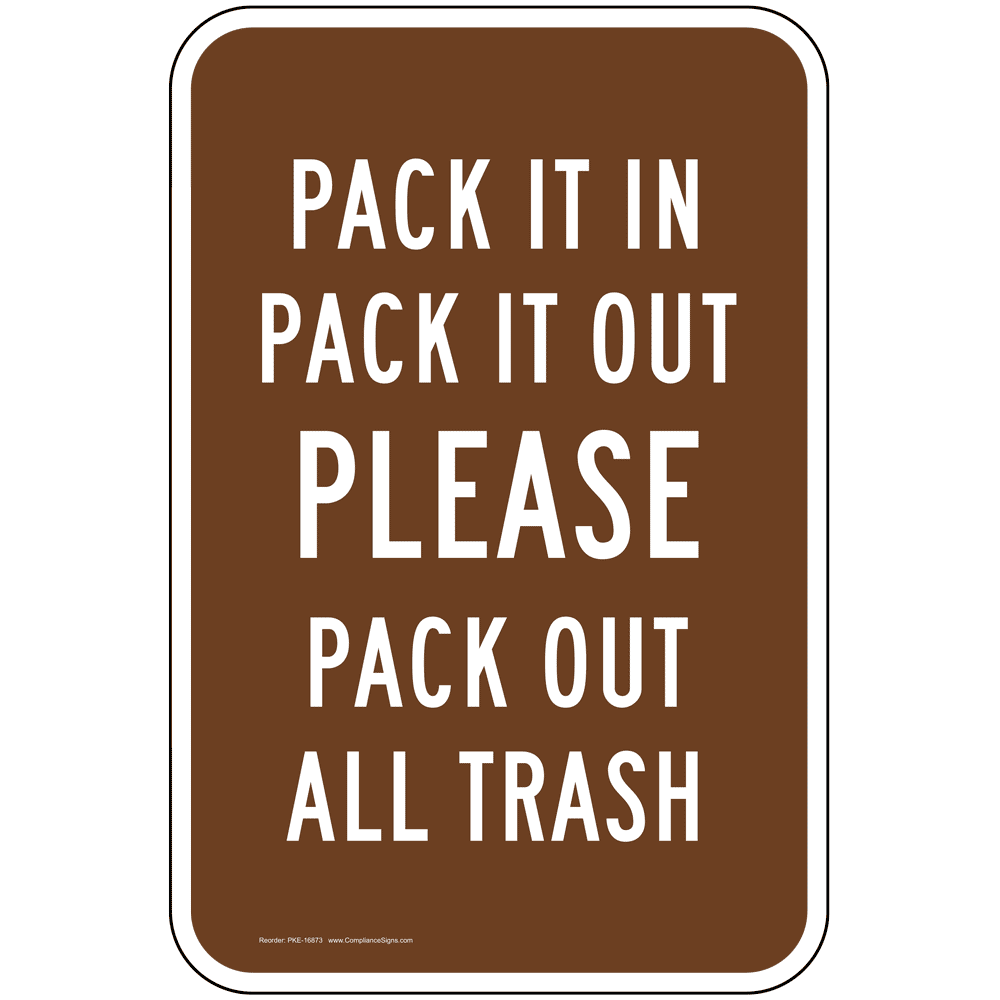
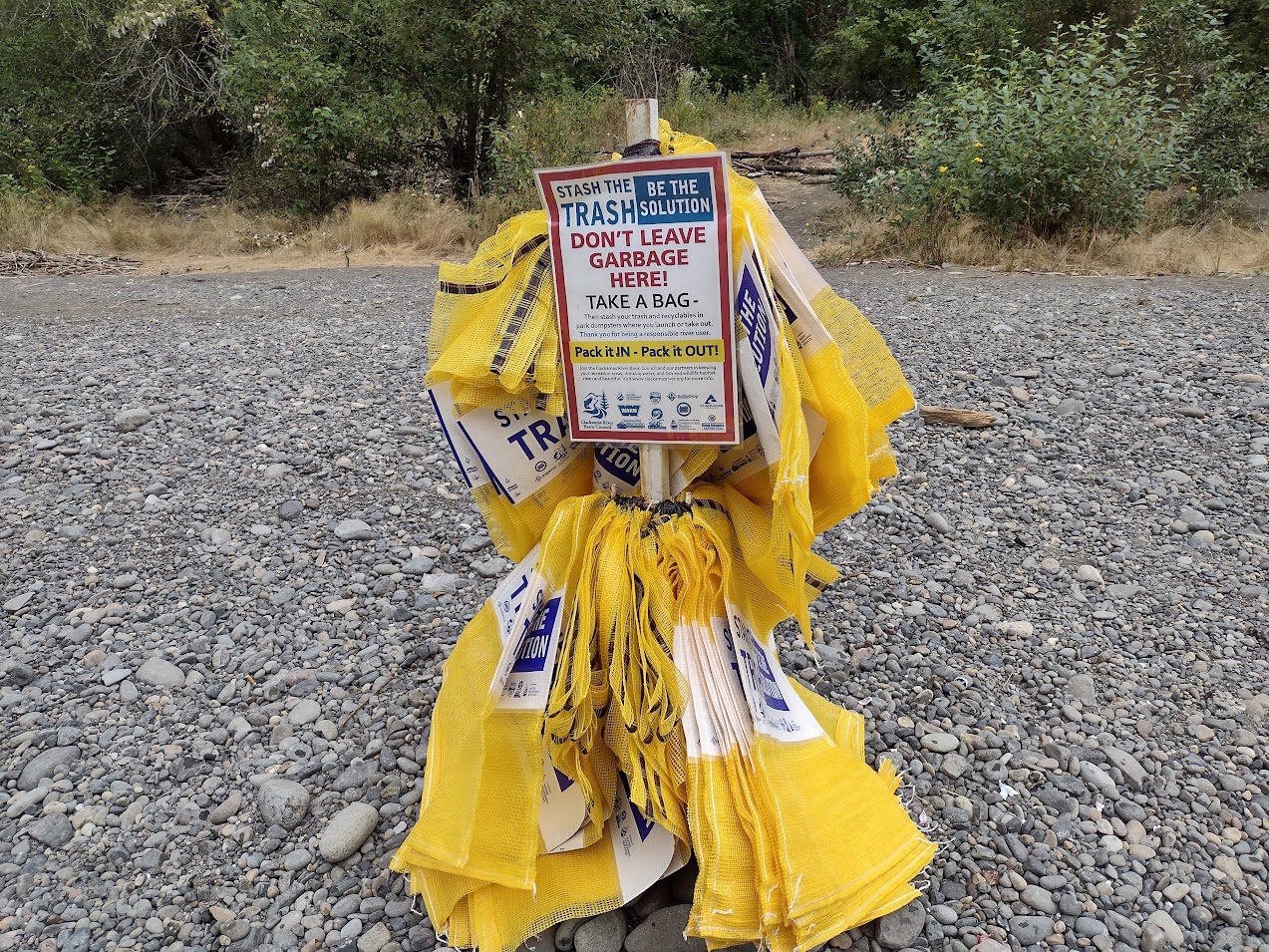
Four easy things to ensure low impact while you recreate on the Clackamas River.
- Leave No Trace: do not leave behind any litter, gear, apparel, food or other items you bring on a float trip. As the motto goes, “Pack it in, Pack it out.” Bring a Stash the Trash bag if one is available, otherwise bring plastic trash bags and secure while you are floating or paddling the river. If you accidentally lose your shoe, cell phone, or other item that should not be in the river, please email info@clackamaswatertrail.org and we will try to organize a retrieval or cleanup.
- Pack Out all animal wastes: some parks have poop-bag stands for pets, but the burden is on you to be prepared and to pick up your animal’s waste. Please plan accordingly, and understand that dog poop in particular carries pathogens that might be deadly to wild animals.
- Be Fire Smart: follow all fire restrictions (absolute bans occur almost every summer). When the ban is lifted only light fires or barbecue in designated fire pits or on grills. Dispose of cigarette ashes/butts in a metal container and pack out (and dispose of in a proper trash container). Do not shoot off fireworks, or otherwise introduce an open flame to the dry grasses and shrubs that grow along the Clackamas River’s edge.
- Observe wildlife from a distance and otherwise leave alone: otters, beavers, elk, deer, and bears use the river for homes and habitat, and all should be respectfully observed at a distance. Fish, , birds, lizards, snakes, and a host of arthropods also live in or around the river, and other than fish taken through legal angling, all should be left alone.
Follow these basic guidelines for minimizing your impact on the incomparable Clackamas River. For other information about safety and stewardship while recreating in the outdoors, check out Travel Oregon’s Take Care Out There webpage. Mt Hood Territory, the tourism agency for Clackamas County, echos the theme with its Otter Dos webpage.
